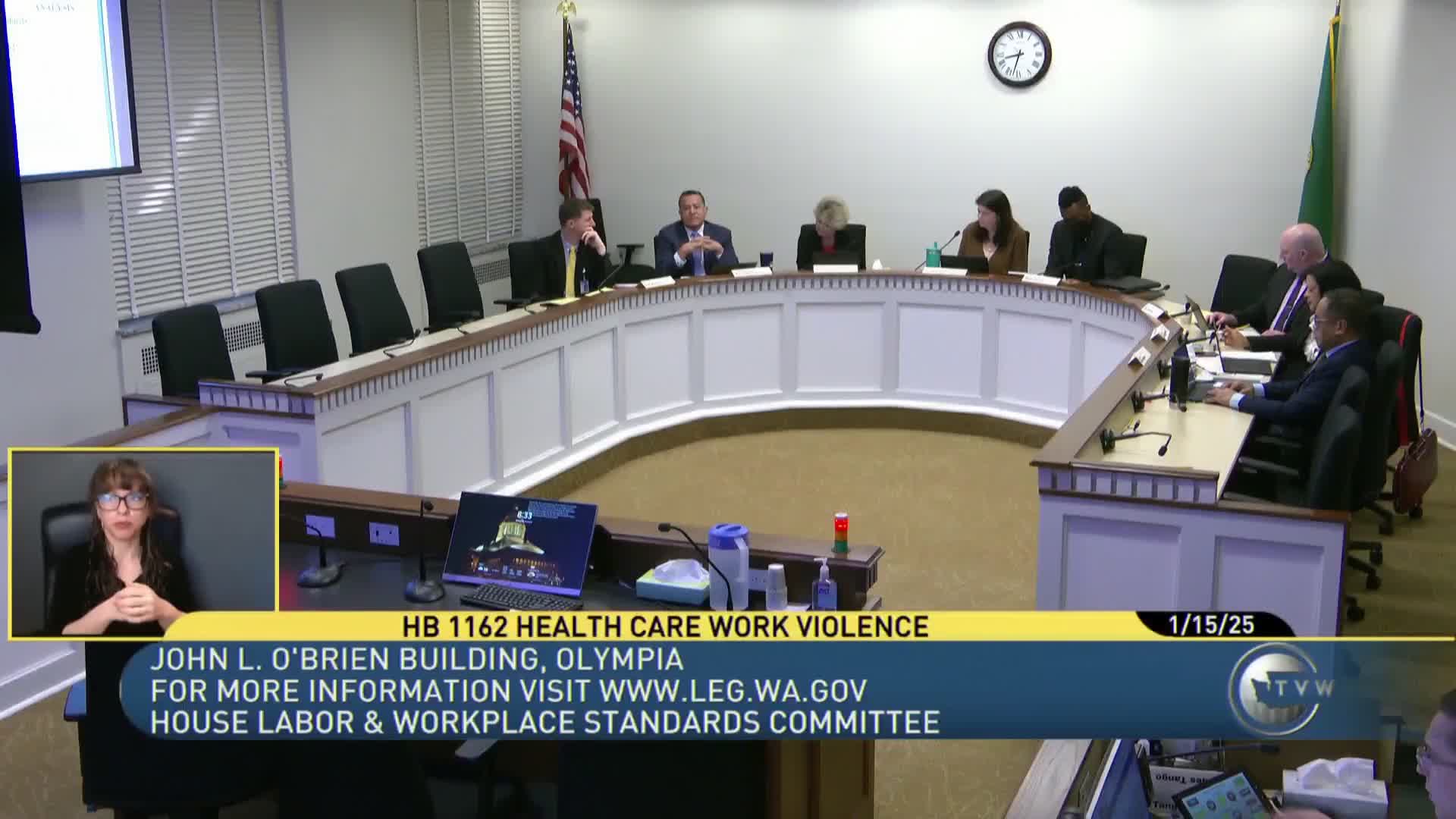Bill to extend collective‑bargaining procedures to cannabis agricultural workers draws mixed testimony
Get AI-powered insights, summaries, and transcripts
Subscribe
Summary
HB 1141 would allow Public Employment Relations Commission processes for collective bargaining at cannabis producers/processors. Supporters said it corrects an inequity for farm workers in the cannabis supply chain; growers and industry trade groups warned of market impacts and urged secret‑ballot elections rather than card checks.
The committee heard House Bill 1141, which would create a framework allowing collective bargaining procedures for agricultural workers at cannabis producers and processors and empower the Public Employment Relations Commission (PERC) to certify bargaining units, run elections, and remedy unfair labor practices.
Staff summarized that the bill fills a gap left by federal and state labor law: agricultural workers are excluded from the National Labor Relations Act and some state collective‑bargaining statutes, and HB 1141 would provide PERC with authority over elections, unfair‑practice remedies, and access to employer information for bargaining representatives in the cannabis agriculture sector.
Rep. Lillian Ortiz Self, the prime sponsor, said the bill corrects an inequity that leaves cannabis farm workers without the same rights to organize as other workers in the industry. Testimony in support came from employee organizers, business owners who support worker rights, and equity advocates. Libby Bridal, a part‑owner of Lilac City Gardens and producer‑processor, said the industry “must do better for its workers” and supported a path to organize. Nathan Howell, a cannabis maintenance worker, said he had been terminated for organizing and later reinstated; he urged the committee to extend protections to agricultural workers who currently lack the right to organize.
Opposition came from multiple industry groups and chambers of commerce representing producers and related agriculture organizations. Vicki Christofferson of the Washington Cannabis Business Association told lawmakers the industry consists mostly of small businesses facing low margins and oversupply, and she urged caution. The Washington Growers League and the Worker and Farmer Labor Association flagged a provision that would allow card‑check recognition (a union certified based on signed authorization cards) rather than a secret‑ballot election; those organizations urged retaining secret‑ballot elections to prevent coercion. Some industry speakers also said the bill could be broadened or amended in later sessions to cover other agricultural sectors; proponents said they began with cannabis because of its equity implications.
Supporters framed the bill as a targeted step to extend organizing rights to workers, particularly Black and brown communities historically harmed by cannabis criminalization. Micah Tsai of Black Excellence in Cannabis called the bill a step toward economic justice for communities disproportionately affected by prohibition.
No formal votes were taken; the committee closed the hearing after testimony.
